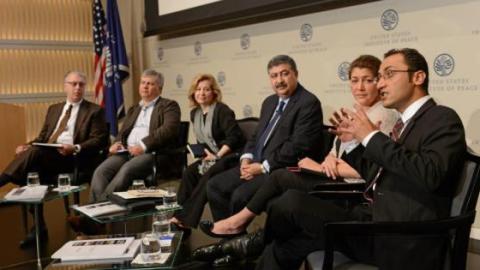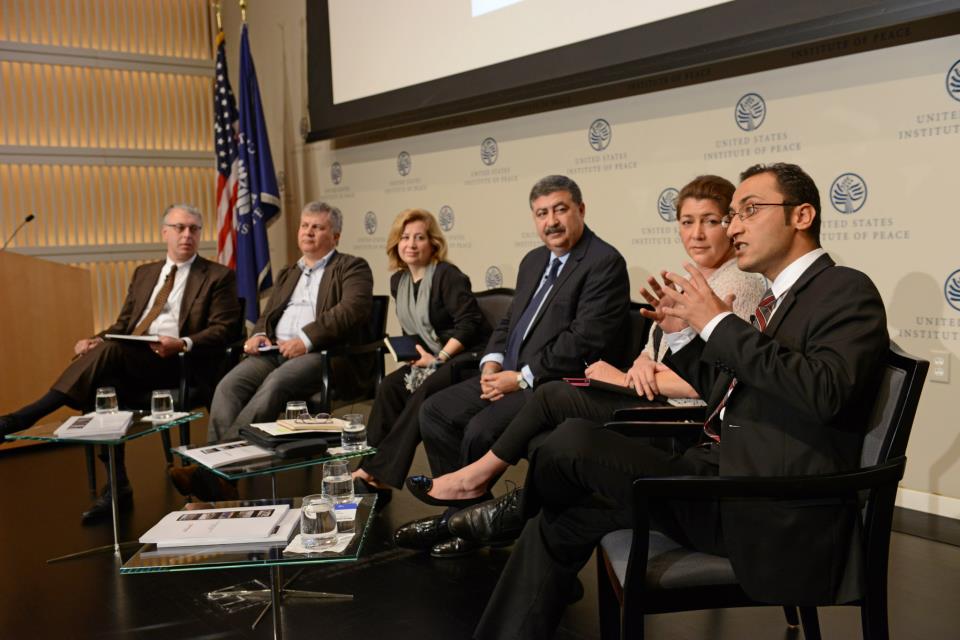The US institute of peace syposium hosted representitives of the Day After group "Rami Nakhla, Rafif Huijati, Murhaf Huijati, Omar al-Azem and Afraa Jalabi"
Media
In early 2012, 45 human rights activists and politicians launched “The Day After” project. The project came after six months of regular meetings in Berlin, and aims to develop a perception of the transitional phase that will lead Syria to democracy. The six months period resulted in formulating the final draft that was published in July 2012 under the title: “The Day After project: Supporting democratic transition of power in Syria”.
The organization was established shortly after the project was first presented, as a gathering of representatives of the political opposition and civil society, who are capable of formulating a comprehensive vision of Syria's transitional phase and as a means to protect civilians and the state infrastructure from descending into a state of chaos. Today, the organization is led by a board of directors consisting of nine people, including researchers, activists, academics and leaders in the Syrian opposition.
The project mainly aims to apply the content of the Day After report in areas that are not subject to regime authority, while simultaneously working on alleviating potential conflicts by keeping and protecting civil records and records of real estate properties.
Executive director Wael al-Sawwah explains the working nature of the project: “we have already started a project to document some real estate records by obtaining a digital copy of them, in case they are destroyed by regime forces or other radical groups. Additionally, we are doing what is necessary to hold the perpetrators accountable for their actions, by forming an independent coordinating group of lawyers, judges and human rights activists that specializes in the field of transitional justice. We are also currently working on two major projects that will be executed in 2014. The first is aimed at reforming the security service appartus in Syria, while the other takes interest in preserving the Syrian cultural heritage.”

Member of the team are trying to strengthen the role of civil society institutions by building their capacities and informing them of the importance of civil activism and the principles of citizenship, civil peace and transitional justice. The group also aims to promote national laws against foreign interference, in coordination with democratic political parties and groups as well as trying through to emphasize the ideas of the rule of law, equality between individuals and political freedom within members of the Syrian opposition.
The Day After activists rely on multiple funding sources, including Denmark, Switzerland and the United States, which serves their purpose of varying the sources of financing as to not be accused of being unilateral.
The Day After team aspires to a civil, democratic, pluralistic Syria, that preserves the rights of individuals regardless of their gender, religion, confessional or national affiliation.




